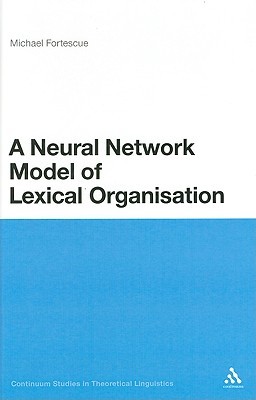
- We will send in 10–14 business days.
- Author: Michael Fortescue
- Publisher: CONTINNUUM 3PL
- ISBN-10: 1441111433
- ISBN-13: 9781441111432
- Format: 15.5 x 23.4 x 1.8 cm, kieti viršeliai
- Language: English
- SAVE -10% with code: EXTRA
Reviews
Description
This is an engaging study of the mental lexicon - the way in which the form and meaning of words is stored by speakers of specific languages. Fortescue attempts to narrow the gap between the results of experimental neurology and the concerns of theoretical linguistics in the area of lexical semantics. The prime goal as regards linguistic theory is to show how matters of lexical organization can be analysed and discussed within a neurologically informed framework that is both adaptable and constrained. It combines the perspectives of distributed network modelling and linguistic semantics, and draws upon the accruing evidence from neuroimaging studies as regards the cortical regions involved. It engages with a number of controversial current issues in both disciplines. This text is intended as a tool for linguists interested in psychological adequacy and the latest advances in Cognitive Science. It provides a principled means of distinguishing those semantic features required by a mental lexicon that have a direct bearing on grammar from those that do not. "A Neural Network Model of Lexical Organisation" is essential reading for researchers in neurolinguistics and lexical semantics. "Continuum Studies in Theoretical Linguistics" publishes work at the forefront of present-day developments in the field. The series is open to studies from all branches of theoretical linguistics and to the full range of theoretical frameworks. Titles in the series present original research that makes a new and significant contribution and are aimed primarily at scholars in the field, but are clear and accessible, making them useful also to students, to new researchers and to scholars in related disciplines.
EXTRA 10 % discount with code: EXTRA
The promotion ends in 23d.19:14:43
The discount code is valid when purchasing from 10 €. Discounts do not stack.
- Author: Michael Fortescue
- Publisher: CONTINNUUM 3PL
- ISBN-10: 1441111433
- ISBN-13: 9781441111432
- Format: 15.5 x 23.4 x 1.8 cm, kieti viršeliai
- Language: English English
This is an engaging study of the mental lexicon - the way in which the form and meaning of words is stored by speakers of specific languages. Fortescue attempts to narrow the gap between the results of experimental neurology and the concerns of theoretical linguistics in the area of lexical semantics. The prime goal as regards linguistic theory is to show how matters of lexical organization can be analysed and discussed within a neurologically informed framework that is both adaptable and constrained. It combines the perspectives of distributed network modelling and linguistic semantics, and draws upon the accruing evidence from neuroimaging studies as regards the cortical regions involved. It engages with a number of controversial current issues in both disciplines. This text is intended as a tool for linguists interested in psychological adequacy and the latest advances in Cognitive Science. It provides a principled means of distinguishing those semantic features required by a mental lexicon that have a direct bearing on grammar from those that do not. "A Neural Network Model of Lexical Organisation" is essential reading for researchers in neurolinguistics and lexical semantics. "Continuum Studies in Theoretical Linguistics" publishes work at the forefront of present-day developments in the field. The series is open to studies from all branches of theoretical linguistics and to the full range of theoretical frameworks. Titles in the series present original research that makes a new and significant contribution and are aimed primarily at scholars in the field, but are clear and accessible, making them useful also to students, to new researchers and to scholars in related disciplines.


Reviews